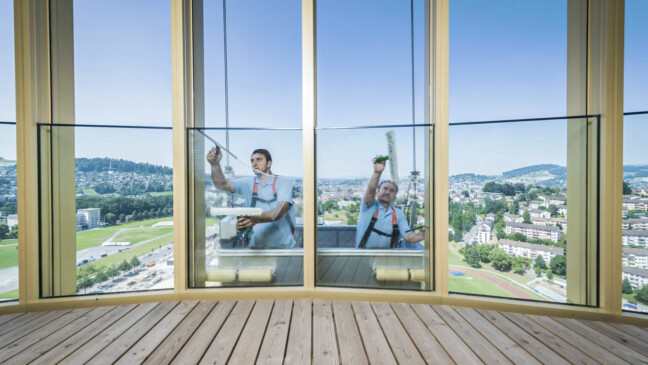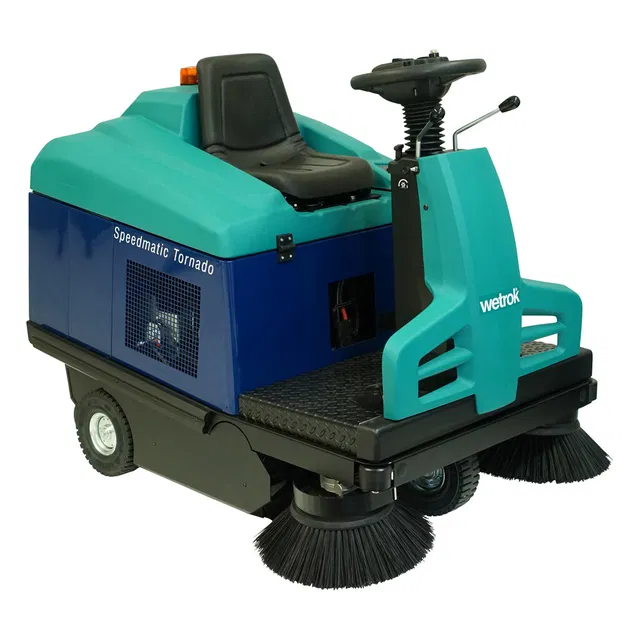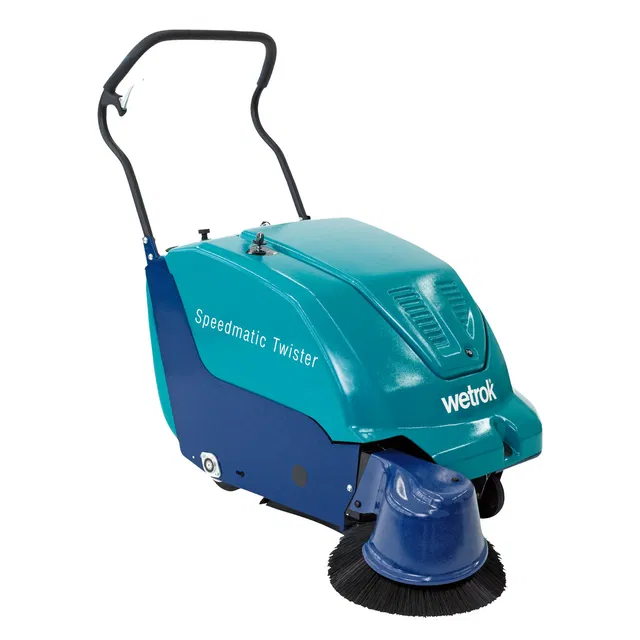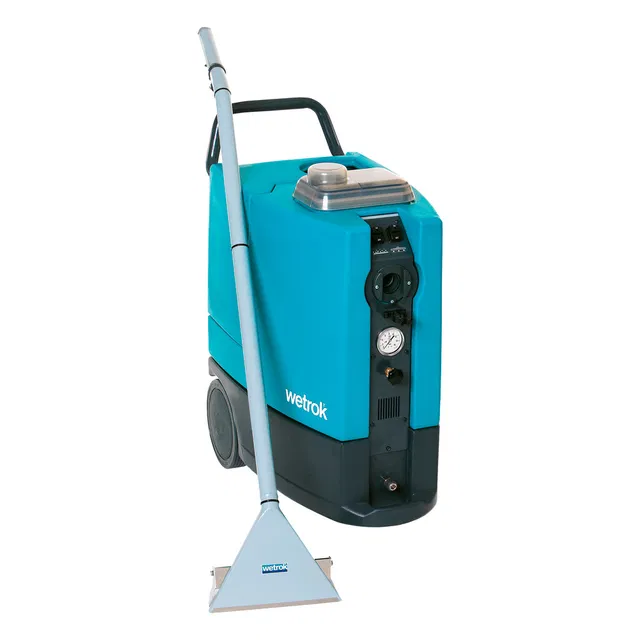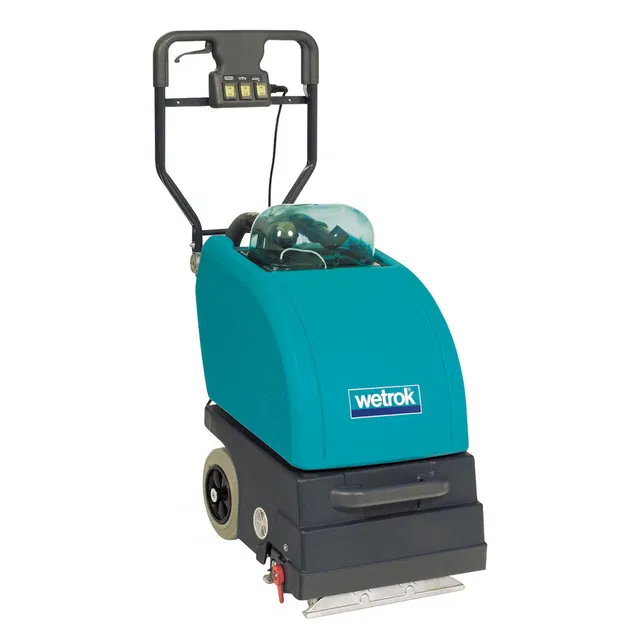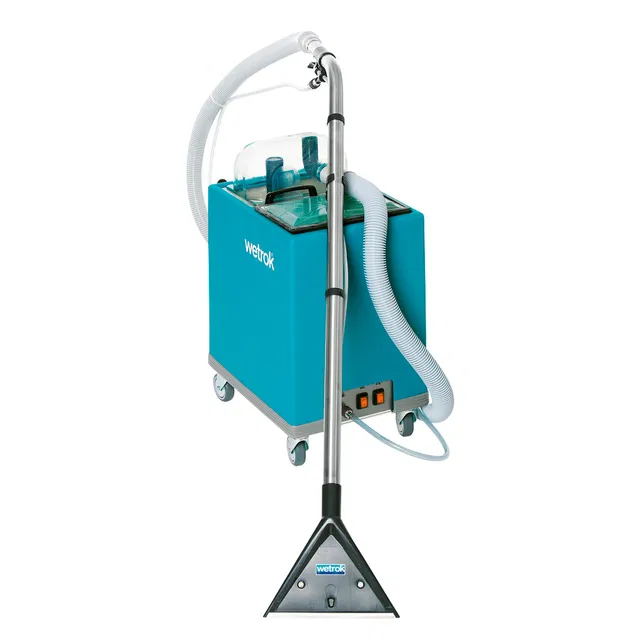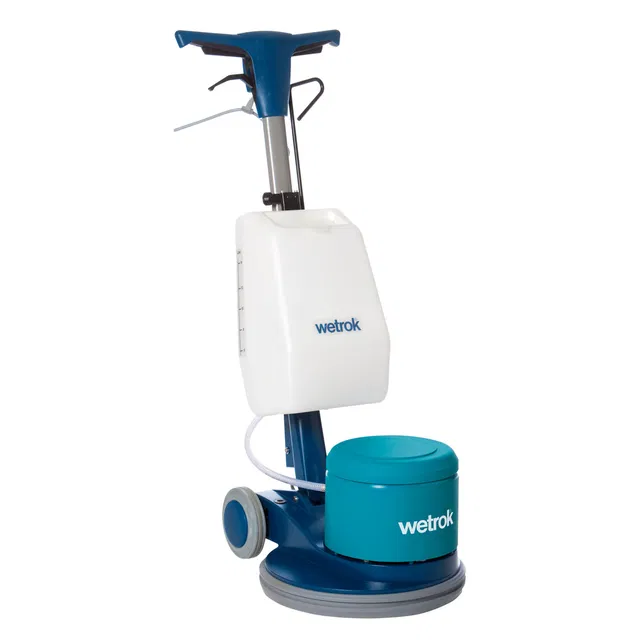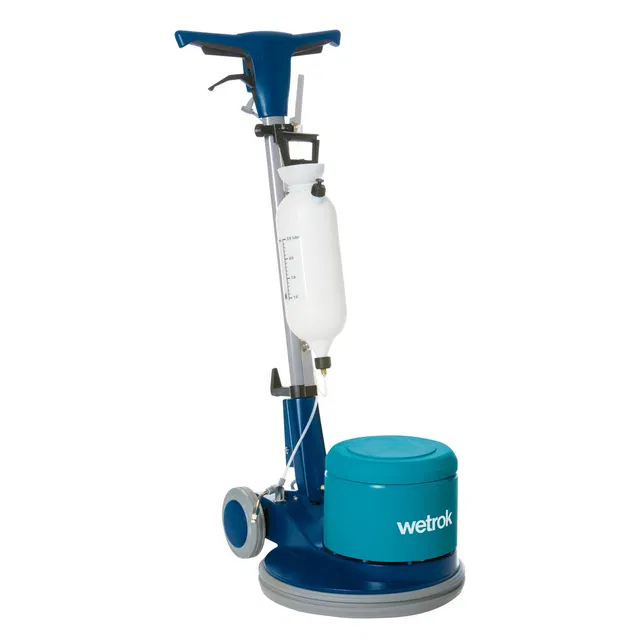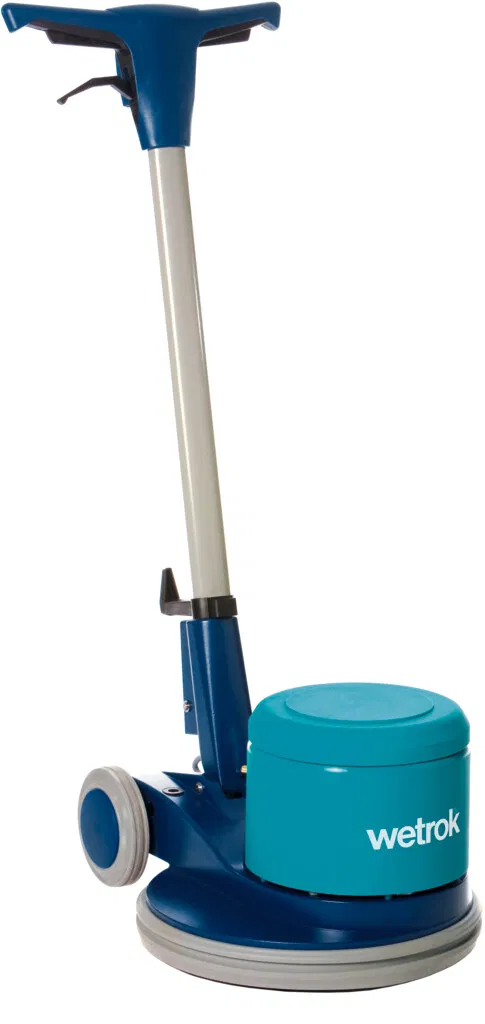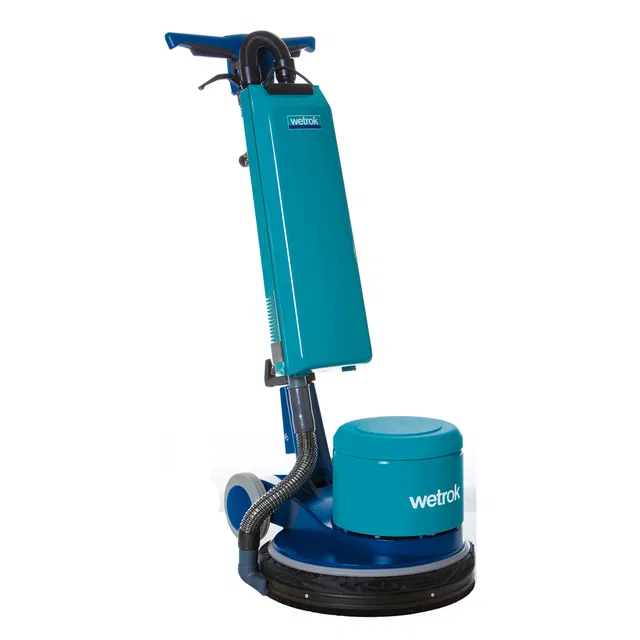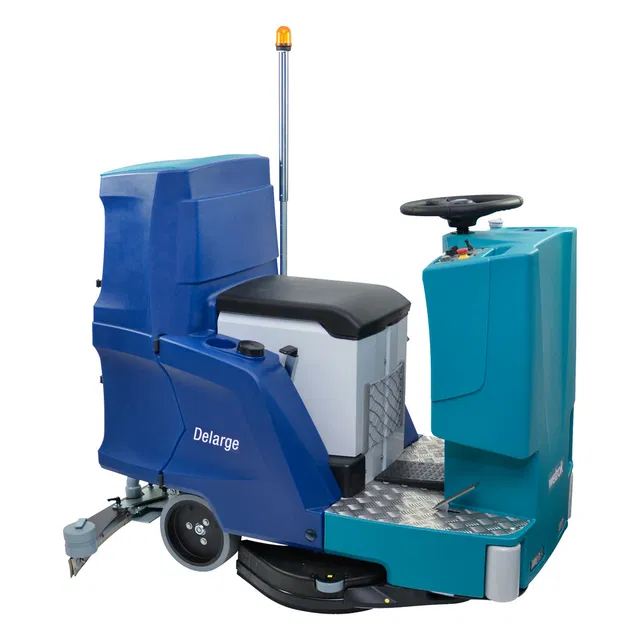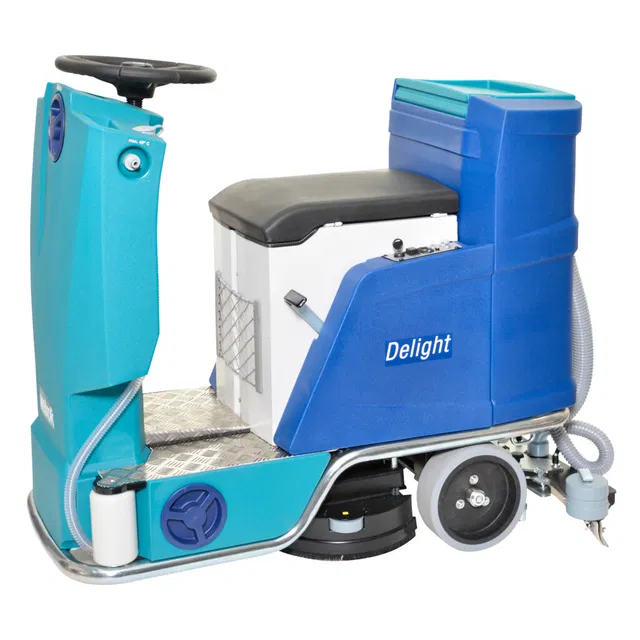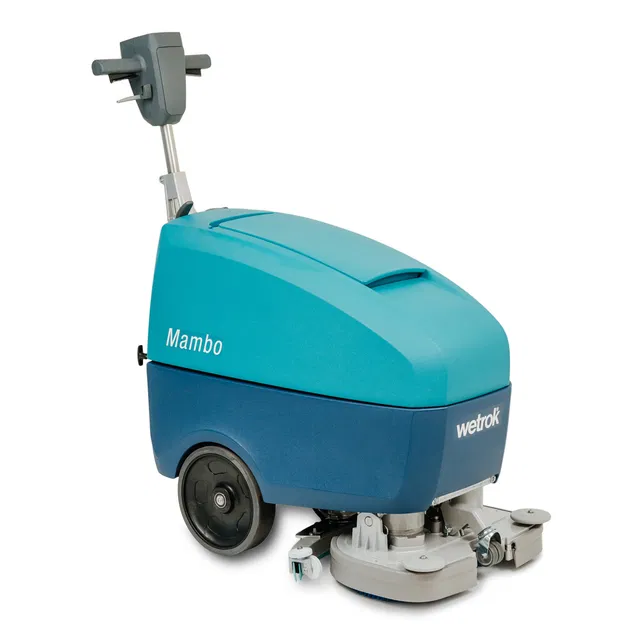
09.05.25
Focus on efficiency and sustainability: An interview with Mathias Gaio and Roland Herzog about the Wetrok Competence Centre (Part 2)
In the second part of the interview, Mathias Gaio and Roland Herzog provide insights into the practical aspects of cleaning control and audits. Wetrok uses modern methods such as ATP measurements and swab tests to monitor cleaning quality and ensure a high level of transparency for customers. Regular audits and targeted training help to identify weak points and continuously optimise cleaning processes. Wetrok also relies on innovative technologies and sustainable concepts to improve cleaning quality in the long term.
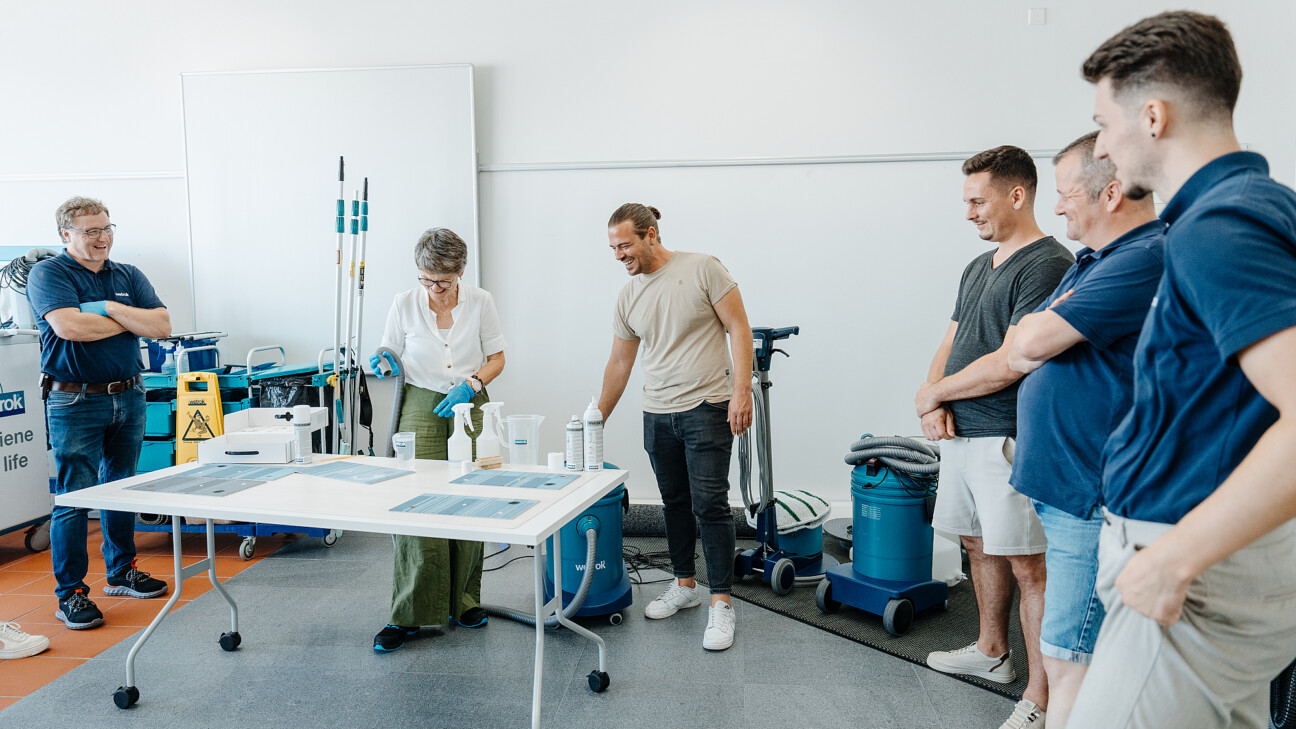
Introduction Mathias Gaio
Mathias Gaio is a trained building cleaner EFZ and has been working at Wetrok in Kloten for five years. He began his career at Wetrok as an application engineer before moving to Exposé, the Wetrok competence centre, where he still prepares cleaning calculations and works as a consultant for cleaning and hygiene concepts.
Presentation Roland Herzog
Roland Herzog has already celebrated his twentieth anniversary at Wetrok, where he has held various positions. His career originally began in the chemistry laboratory. However, he also completed training as an EFZ building cleaner and technical business administrator. He has now been in charge of Wetrok’s competence centre for ten years.
This interview is divided into two parts. In the first part, you can read about the cleaning and hygiene concepts, the creation of cleaning plans and quality management.
Cleaning control
What methods or tools does Wetrok use to carry out the cleaning inspection?
We use various methods, including visual inspections, ATP measurements and swab tests, to check the cleaning quality. These tools enable us to evaluate the effectiveness of the cleaning and detect microbiological contamination. The results are documented and summarised in a final report, which is made available to the customer.
How important is the transparency of cleaning control for customers, and how do you guarantee this?
Transparency is of great importance to our customers, as it provides certainty about the quality of the cleaning. We ensure transparency by documenting the results of our inspections in detail and making them available to the customer. If necessary, we carry out follow-up inspections to ensure that any defects have been rectified and that the cleaning quality meets the requirements.
Audits
Can you explain how an audit within the Wetrok Competence Centre works?
An audit begins with a detailed analysis of the current cleaning processes and standards. We check compliance with the defined cleaning plans and legal requirements and carry out checks to identify deviations. We then work with the customer to develop measures to rectify the deviations and support the customer in their implementation.
What are common weaknesses identified during audits and how does Wetrok support its customers in eliminating them?
Frequent weak points are inadequate staff training or incorrect use of cleaning agents. We support our customers with targeted instructions and training. We also offer follow-up inspections to ensure that the measures have been successfully implemented and the cleaning quality has improved.
How often should audits ideally be carried out and what are the benefits of regular reviews?
Ideally, audits should be carried out at least once a year in order to continuously monitor and improve cleaning quality. Regular audits help to recognise and address weaknesses at an early stage, which leads to greater customer satisfaction and more efficient cleaning processes in the long term.
Academy
What training and further education programmes does the Wetrok Academy offer?
The Wetrok Academy offers a wide range of training courses, including instructions on the use of cleaning agents and equipment as well as training on specific cleaning methods. The training courses are aimed at both cleaning staff and managers and are tailored to the individual needs of customers.
Which target groups are the training courses aimed at – cleaning staff, managers or both?
The training courses are aimed at both target groups. While cleaning staff are trained in the practical application of cleaning agents and methods in particular, managers receive in-depth insights into the planning and organisation of cleaning processes. This ensures that everyone involved has the necessary expertise to guarantee cleaning quality.
How do you measure the success of the training courses and are there feedback processes in place to continuously improve the programmes?
The success of each training course is measured by feedback from participants in order to continuously improve the training programmes and adapt them to the needs of customers. We also offer follow-up training to ensure that what has been learnt is put into practice.
Vision for the future and innovation
What developments and trends do you see for the future of the cleaning and hygiene industry?
The future of the cleaning industry will be heavily influenced by digitalisation and automation. Robots and digital tools will increasingly be used to take over manual tasks and optimise processes. At the same time, sustainability will play an ever greater role, both in the choice of cleaning agents and in the development of durable cleaning equipment (machines, appliances and textiles).
To what extent will the Wetrok Competence Centre be working on innovations and new concepts in the coming years to respond to these trends?
The Wetrok competence centre will continue to invest in the development of innovative cleaning concepts with sustainable products and the integration of new technologies. We are already working on the digitalisation of cleaning schedules and the introduction of robotics in cleaning. Our aim is to improve cleaning quality and increase efficiency at the same time through continuous innovation.
What message would you like to give Wetrok’s customers and partners about the competence centre?
Our message is simple: don’t hesitate to contact us if you need support in developing a sustainable cleaning or hygiene concept or would like a cleaning calculation for your property. We offer customised solutions tailored to your specific needs and support you in their implementation to ensure a high quality of cleaning.
Is there anything else you would like to emphasise on this topic?
One important aspect that we would like to emphasise is the importance of sustainability in cleaning. We not only consider the choice of cleaning agents, but also the efficiency and longevity of the cleaning systems. Our aim is to offer holistic solutions that make both ecological and economic sense.
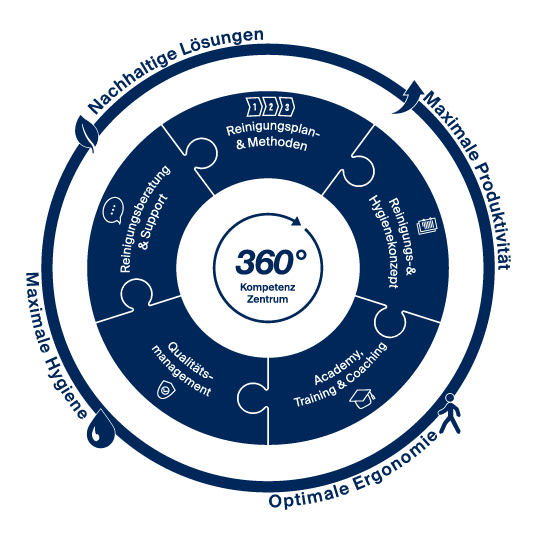
Click here to go to the Wetrok competence centre: https://wetrok.ch/ch_en/competence-centre

